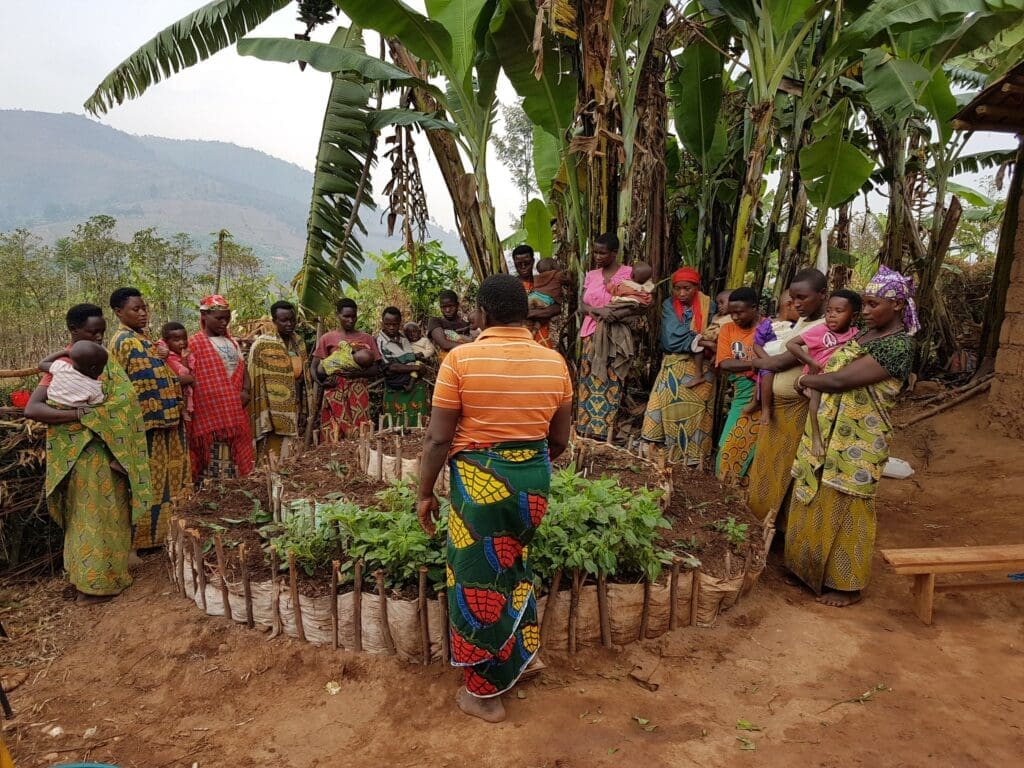
“I Thought You Needed a Lot of Money to Eat Well. I Was Wrong.”
Marie Joselyne’s face radiates happiness when she talks about her children’s nutritional situation.
“Can you see how healthy they are? This is a result of what I have recently learnt from the nutrition education and rehabilitation centre. Now, I know what to do in order to offer a well-balanced meal to my children,” she proudly says, standing in front of her house in Gitega Province (central Burundi).
Like 90% of the Burundian population, Marie Joselyne and her family depend on agriculture for their survival. Their daily diet —for both children and adults — consists mainly of cassava leaves and Irish potatoes, and sometimes banana or beans.
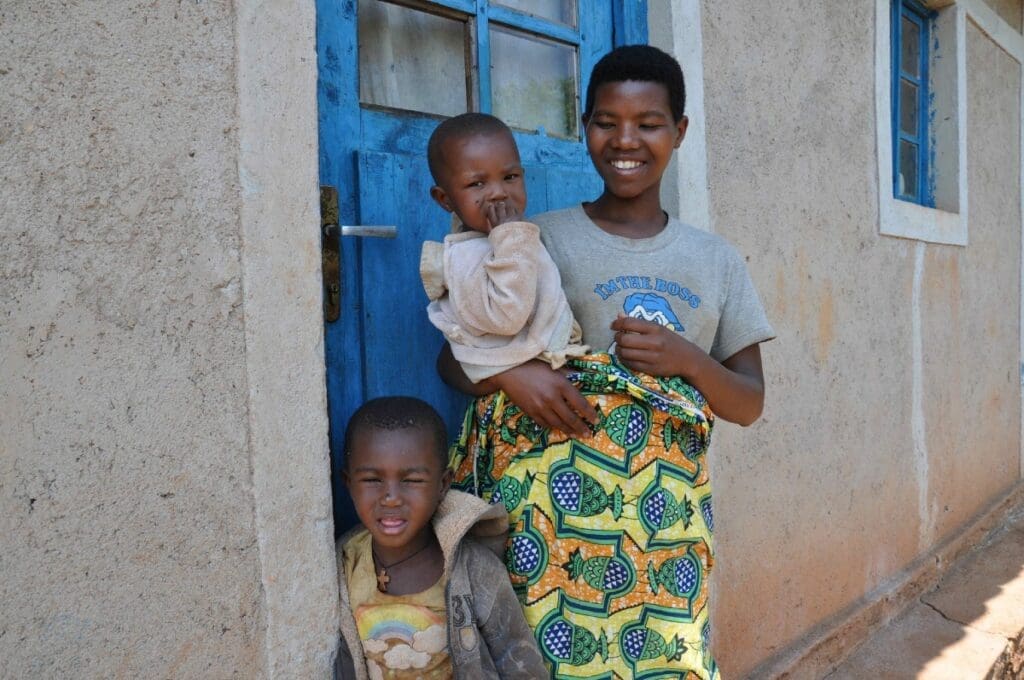
Like 90 percent of the population in Burundi, Marie Joselyne and her family depend on agriculture for a living.
“My children were reluctant to eat the same meal every day. I had no choice but to force them to eat otherwise they would sleep on an empty stomach. They were not happy at all and they often fell sick,” Marie Joselyne recalls.
Lack of dietary diversity and inadequate infant and young child feeding practices were associated with chronic malnutrition according to the 2016–2017 Demographic and Health Survey (DHS). Provisional findings from this survey revealed that 56 percent of children under 5 are stunted, 61 percent are anemic, and 46 percent of children aged between 6 months and 5 years suffer from vitamin A deficiency.
To address this situation, the Government of Burundi initiated a community-based nutrition education programme with technical and financial support from the World Food Programme (WFP) and its partners. The objective is to reinforce knowledge and build the capacity of mothers and guardians of children on best feeding practices for infant and young children, pregnant women and nursing mothers.
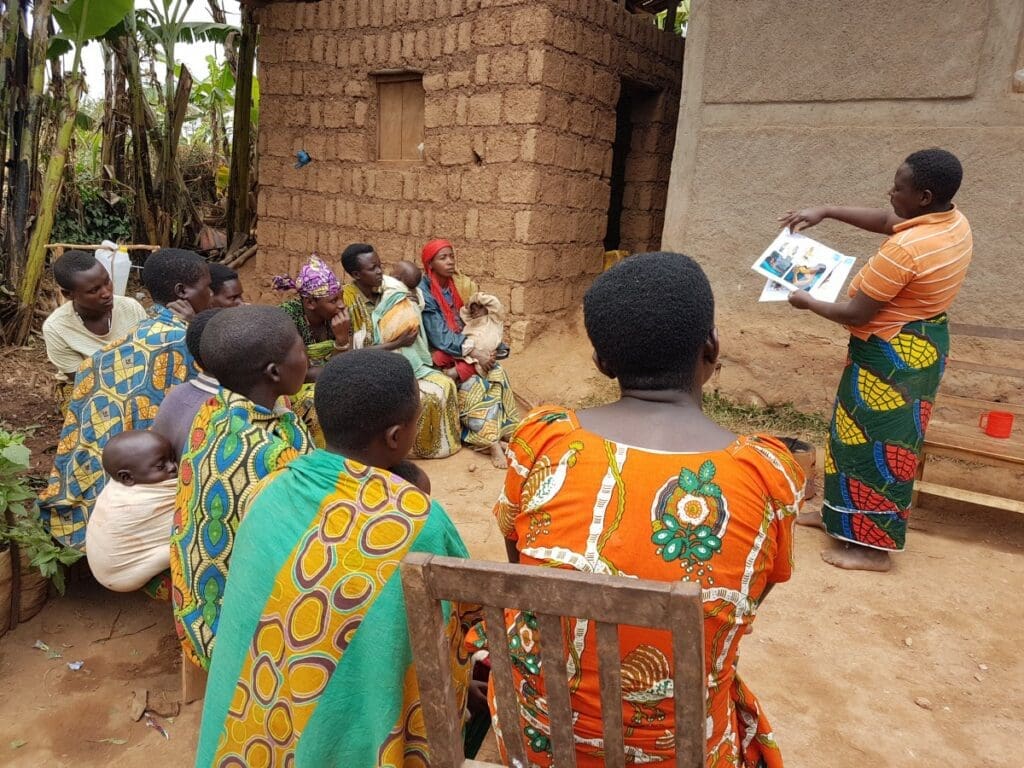
Under the guidance of an experienced volunteer, community members learn about hygiene and healthy eating practices.
The mother of five decided to join the programme in August 2018. Twice a week, under the supervision of an experienced volunteer called a “Light-mother”, Marie Joselyne and her fellow community members learn about hand washing, breastfeeding, family planning, prenatal visits and how to cook diversified and balanced meals based on local recipes.
The training sessions turned out to be very useful for fathers as well. Claver Pilipili, a 60-year-old father from the Kinyonza commune is also one of the participants.
“I really appreciate these activities. I often participate by bringing foodstuffs such as peanuts and green vegetables. I like the cooking demonstrations the most — they teach us things that are very important for our children,” he says.
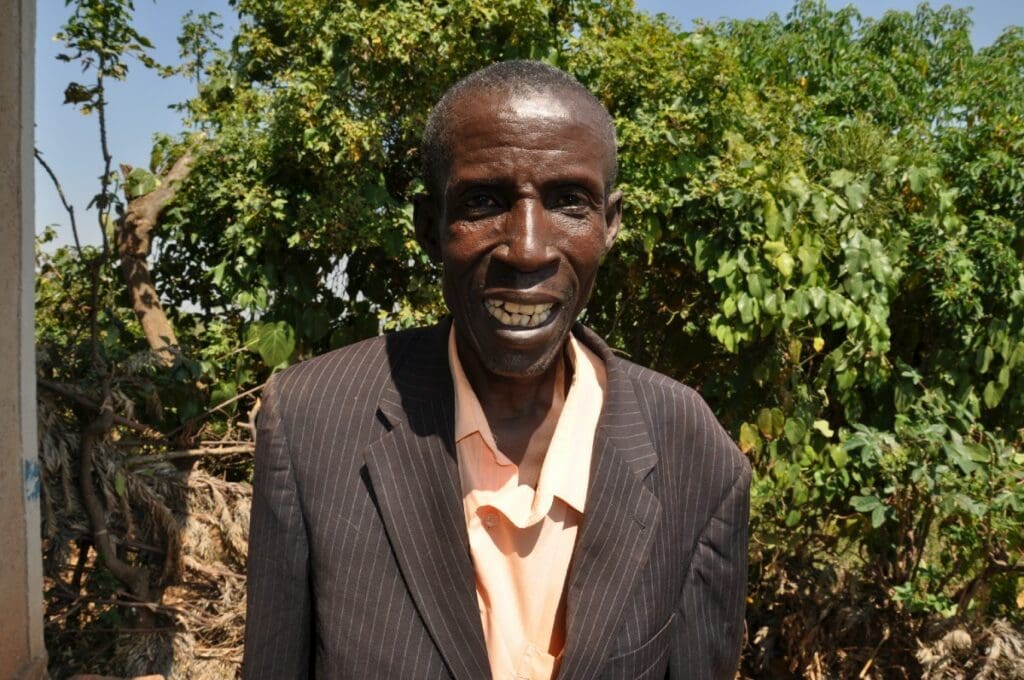
Fathers like Claver Pilipili also benefit from community-based nutrition education sessions.
As a result of her participation in the nutrition education programme, Marie Joselyne knows how to prepare a healthy and balanced meal based on local food products including banana, maize flour, cassava leaves, eggs, peanut, etc. She has also learnt to set up a kitchen garden where she can grow vegetables.
“I thought you needed to have a lot of money to eat well. Now I realized that I was wrong. With the little resources available around, I have got what I need for a balanced meal. My children are happy and they look healthy,” she beams.
In Burundi, WFP and its partners support the Government in implementing a range of community-based activities to prevent malnutrition, address vitamin and mineral deficiencies and ensure adequate treatment of acute moderate malnutrition.
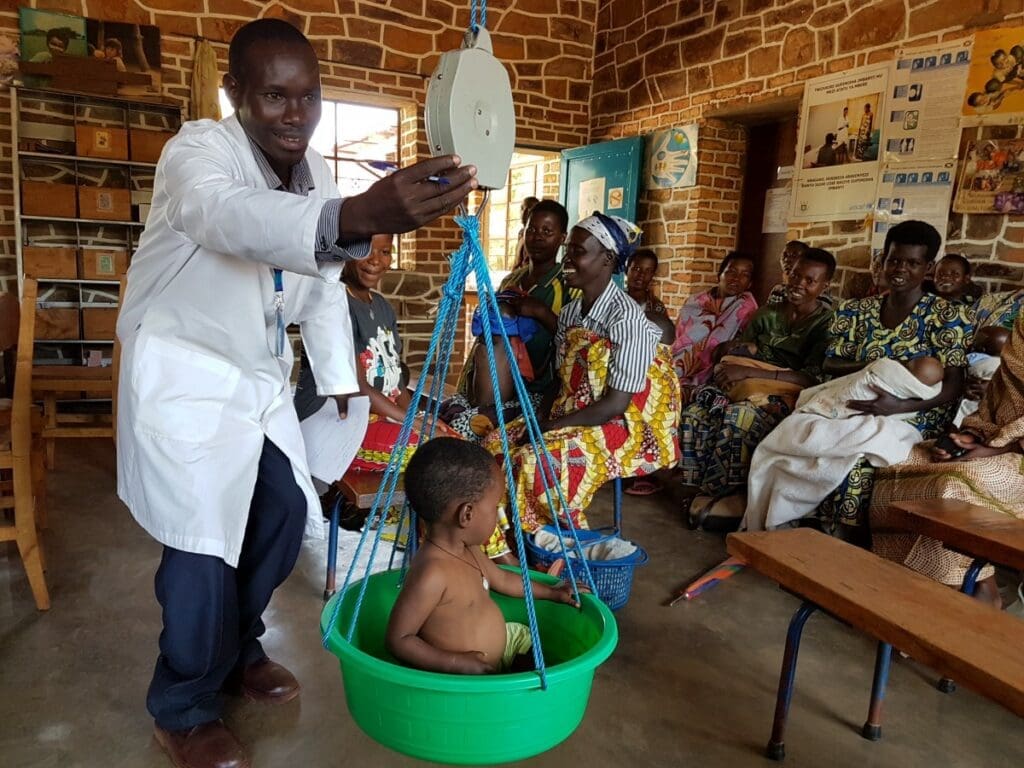
A health worker weighs a child during a nutrition screening session in Gitega province.
In 2018, more than 123,500 moderately malnourished children under 5, pregnant women and nursing mothers received specialized nutritious foods across the country thanks to generous contributions from the European Union, Germany, Netherlands and the US.
Learn more about WFP’s work in Burundi here or read one of our most popular stories, 10 Facts About Conflict & Hunger in Burundi.
This story was written by Djaounsede Madjiangar and originally appeared on WFP’s Insights.




